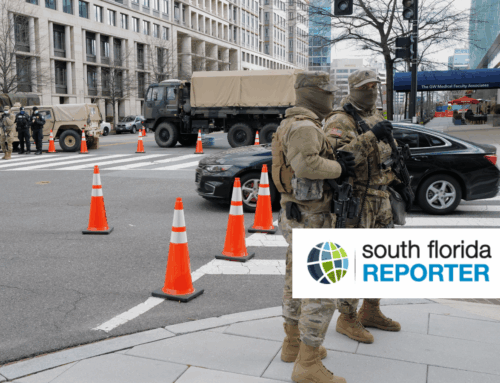(June 4, 2010) This week’s Memorial Day Congressional recess gave us a chance to peer under the lid of the House defense authorization bill. Though defense authorization determines policy rather than spending, it sets a precedent for appropriations bills. Of course we took a look at the earmarks, and new House rules limiting them have made a big difference.
The 236 earmarks worth $950 million attached to the bill is much lower than years past: Last year’s House bill had 502 earmarks worth $2.26 billion, and even that was a reduction from the FY2009 total of 539 worth nearly $10 billion. We can largely thank the House Republican Conference earmark moratorium for this: The only Republican to earmark the bill were Anh Cao (R-CA), who joined a group earmark for helicopter modifications (see below). Cao is one of four Republicans to opt out of the moratorium, along with Ron Paul (R-TX), Don Young (R-AK) and Henry Brown Jr. (R-SC).
- $24 million from House Armed Services Committee Chairman Ike Skelton (D-MO) for a “consolidated air operations facility” at Whiteman Air Force Base in Missouri.
- $17 million sponsored by 23 lawmakers for modifications to Blackhawk helicopters for the Army National Guard, headquartered at Redstone Arsenal, Alabama.
- $14 million for an “aircraft component maintenance shop” at Corpus Christi Army Depot, sponsored by Solomon Ortiz (D-TX).
Another notable departure from the past is the predominance of nonprofit beneficiaries. Previous bills listed as beneficiaries a mix of military bases, research institutes and universities along with defense companies. But as scrutiny of earmarks increased, public opinion on these corporate handouts soured. This sentiment led House Appropriations Chairman David Obey (D-WI) to outlaw for-profit earmarks in this year’s appropriations bills. The result is that nearly all of the “intended recipients” named in the defense authorization bill are nonprofit entities, though some resort to vague descriptors such as “Department of Defense” or the names of cities where the money is directed.
Wondering how closely Dems have followed the rule thus far, we drilled down on the earmark requests filed by Democrats on the House Defense Appropriations subcommittee. Our findings: While a few for-profit earmarks snuck in, members stuck to the rule by and large, raising nonprofit earmarking precipitously. For example, Maurice Hinchey (D-NY) filed 10 requests for corporations in FY2010 totaling $40 million and nine nonprofit requests totaling $32 million. This year, corporations got no requests from Hinchey, but nonprofits received 17 requests worth $67 million. House Defense Appropriations Subcommittee Chairman Norm Dicks (D-WA) filed nine requests for corporations in FY2010 totaling $35 million and eight for non-profits totaling $29 million. In FY 2011, he filed three requests for corporations totaling $13 million and nine non-profit requests totaling $32 million.
(May 28, 2010) The House of Representatives today passed a defense authorization bill for FY2011 that includes $485 million for an F-35 Joint Strike Fighter alternate engine the Defense Department doesn't want. Lawmakers yesterday rejected an amendment that would have stripped the money from the bill, added during the House Armed Services Committee markup last week along with provisions that would further entrench the alternate engine in the JSF budget.
Congress has inserted more than $2 billion for the program into spending bills during the past four years over Defense Department protests. Defense Secretary Robert Gates recommended the President veto any bill that continues the engine program, and the White House issued a Statement of Administration Policy yesterday restating the veto threat. Yesterday's Senate Armed Services Committee markup of the bill did not include money for the engine, though Chairman Carl Levin (D-MI) is a vocal supporter.
The House bill authorizes $567 billion in base funds for the Defense Department, including the National Nuclear Security Administration. Other amendments attached to the legislation would:
- Prohibit Army procurement funds for line-haul tractors unless selection is made based on a full and open competition. Sponsor Roscoe Bartlett (R-MD) added a $2.4 million earmark to the FY2009 defense appropriations bill for a Hagerstown company that manufactures drive systems for the tractors.
- Require the Department of Defense to consider “unfair competitive advantages” in bidding the aerial tanker replacement program and report them Congressional defense committees within 60 days. Rep. Jay Inslee (D-WA) represents many Boeing workers and has criticized EADS, Boeing’s competitor in the multibillion tanker competition, for receiving European Union subsidies.
- Require non-defense agencies to establish contractor inventories and insourcing programs similar to the Defense Department. The amendment sponsored by John Sarbanes (D-MD) would prevent agencies from creating a quota for Federal job conversion, require OMB to report to Congress on agency insourcing policies, and make GAO evaluate OMB reporting. Another amendment, sponsored by Carol Shea-Porter (D-NH), would penalize prime contractors that fail to provide information for databases on contracts in Iraq and Afghanistan by withholding award and incentive fee payments.










